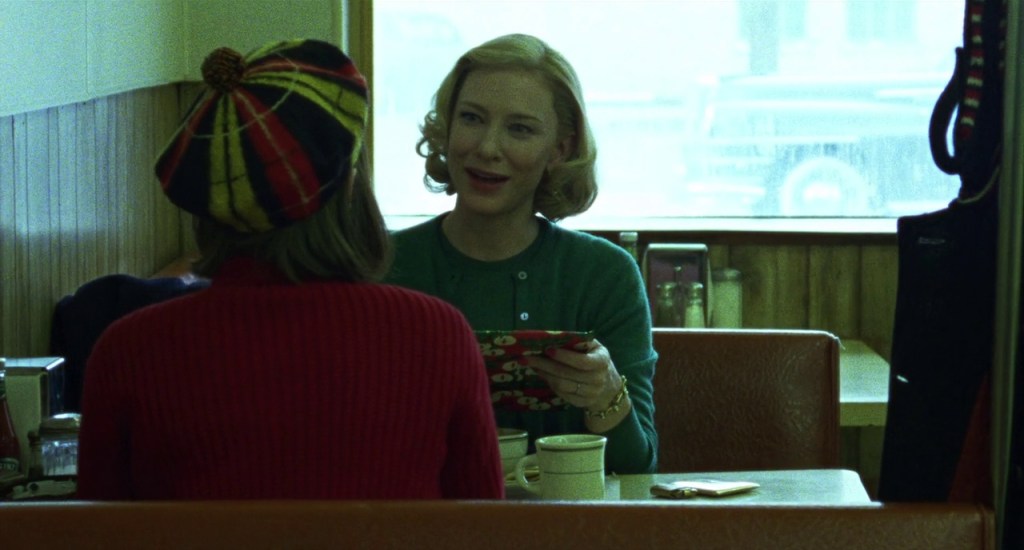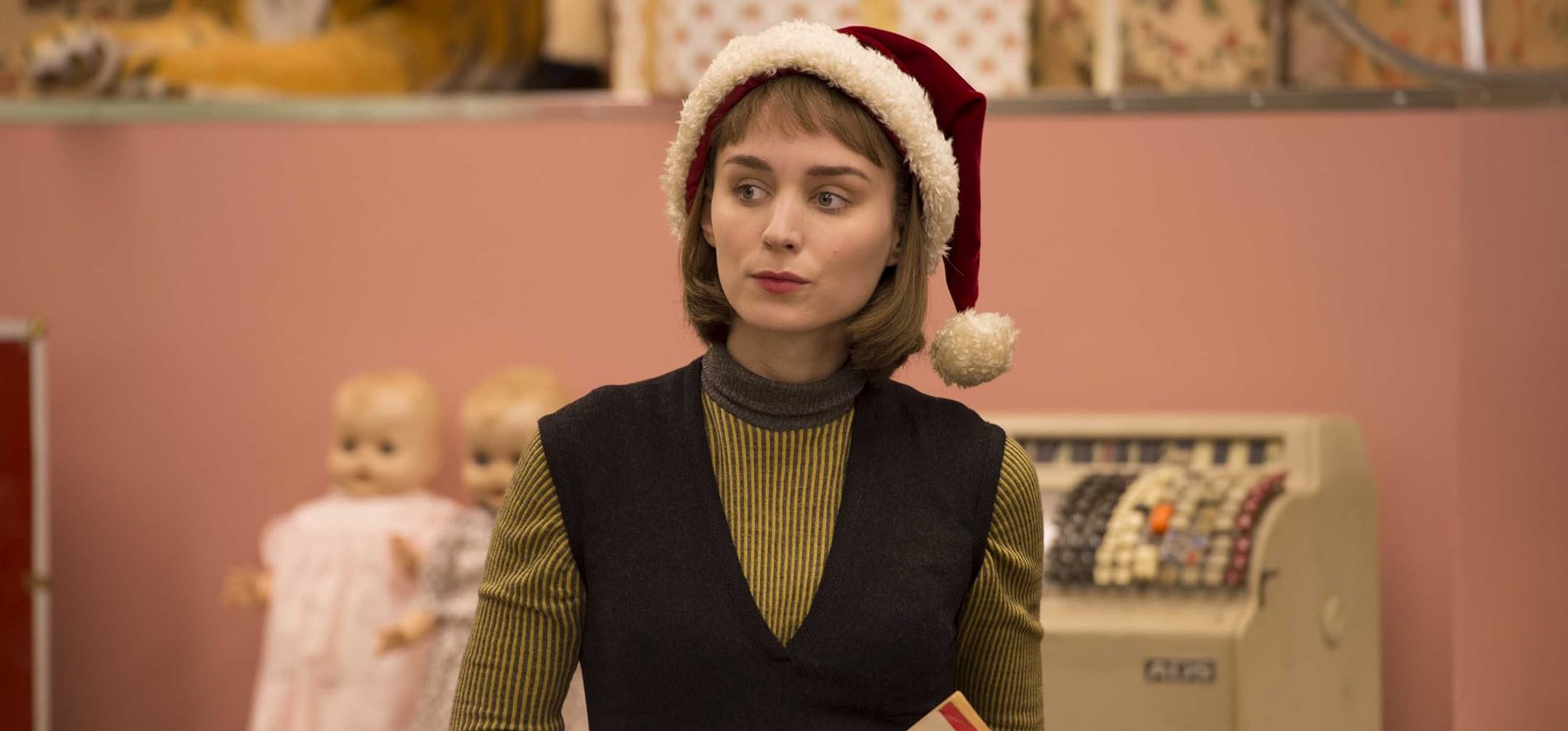‘Carol‘ is a 2015 romance movie about the tender love affair between two women embroiled in their struggles with men. The film follows Therese Belivet, an aspiring photographer, and Carol Aird, a glamorous woman, as they develop a romantic interest in one another. The latter is in the middle of a divorce proceeding, while Therese is biding her time in a one-sided relationship with a man who wishes to marry her in France. They meet each other in a department store, and as sparks fly, their attraction is challenged by their circumstances and the community’s restrictions. As such, the film’s intimate exploration of a budding relationship between two women is enhanced by the significance of its setting, which qualifies for further examination! SPOILERS AHEAD.
Carol Takes Place in 1952 Manhattan, New York
Directed by Todd Haynes, ‘Carol’ unravels the rigid social, political, and gender dynamics present in Manhattan, New York, in 1952. When Carol and Therese meet and establish a deeper bond, their relationship is opposed by those around them. The pair’s attempt at publicly cherishing their togetherness is considered condemnable during the era. Instead, the duo keeps their affair as secretive as possible. However, this isn’t always easy because heterosexual relationships are considered the norm, and Carol and Therese’s love affair is unnatural to those who don’t understand them. According to Haynes, the challenges their same-sex relationship faced in the 50s were a definite distinguishing factor as the film delved deep into such a relationship.

‘Carol’ is based on the 1952 novel ‘The Price of Salt’ by Patricia Highsmith. Considering that the narrative covers the semi-autobiographical experiences of the author, she had first-hand experience of the oppressive nature of the time and how that impacted her relationships. Highsmith based the central relationship between Carol and Therese on previous relationships she had with women. There were accounts of people having to keep their sexuality hidden and keep themselves sheltered in the normalcy of everyone else’s social boundaries. The discovery of one’s identity was challenging to figure out when people were judged harshly for stepping out of line.
While most of the film is set in Manhattan, there is also a road trip that Carol embarks on with Therese across several states. This journey can be seen as a metaphor for the growing relationship between the two women. They have tender moments of connection across Ohio and Iowa during the trip. They stop in motels in between, and Therese spends her time conversing or sleeping in the passenger seat while Carol drives her car through the interstate highways before reaching Chicago. Carol’s house, which is located in New Jersey, is also a significant setting.
The Social Norms of the 50s Influence Carol and Therese’s Relationship
In the middle of Carol and Therese’s blossoming connection, the former also has to deal with the weight of her divorce proceedings with Harge, her husband, and the custody battle for her daughter, Rindy. This is made more difficult when Harge is constantly suspicious of her sexuality and questions the validity of her relationships with Abby, whom Carol had dated previously, and her new interest in Therese. This closed attitude of narrow-mindedness creates the central tension within the narrative. Even Therese faces pushback from her boyfriend Richard, who accuses her of having a severe crush on Carol. Harge goes so far as to employ the services of a private investigator to uncover the truth of the bond between Therese and Carol.

The custody battle for Carol’s daughter takes a turn for the worse when Harge threatens to reveal the truth about Carol’s same-sex orientation to the world and the court of law. A morality clause hinges on Carol’s relationships with Abby and Therese, who are thrown into the legal and domestic feud to give Harge the upper hand. There is much fear of a scandal and the reputational damage such a court case could cause. The whole period is rife with a button-down and repressive attitude towards the idea of engaging in anything other than a straight relationship between a man and a woman. Carol and Therese cannot engage in a free relationship in the open, as everything must be handled under the darkness of the night and through secrecy. Even Carol getting forced to consult a psychologist because she is a queer woman aptly reveals what life was like during that period in history.
Read more: Carol Ending, Explained


You must be logged in to post a comment.